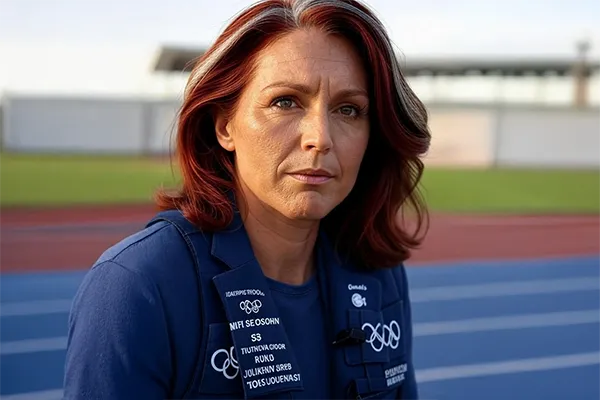By Joe Battaglia
Hidden In The Shadows: What Drives Nova Mendlesohn
August 05, 2025
Nova Mendelsohn’s life is a raw, pulsing wound, each scar etched by moments of triumph and devastation that throb beneath her skin like a fever. At 53, she stands as a solitary sentinel in Olympic journalism, her red hair streaked with silver, her hazel eyes cutting through the gilded sheen of Doha’s 2040 Summer Games to unearth truths the IOC buries in shadow.

